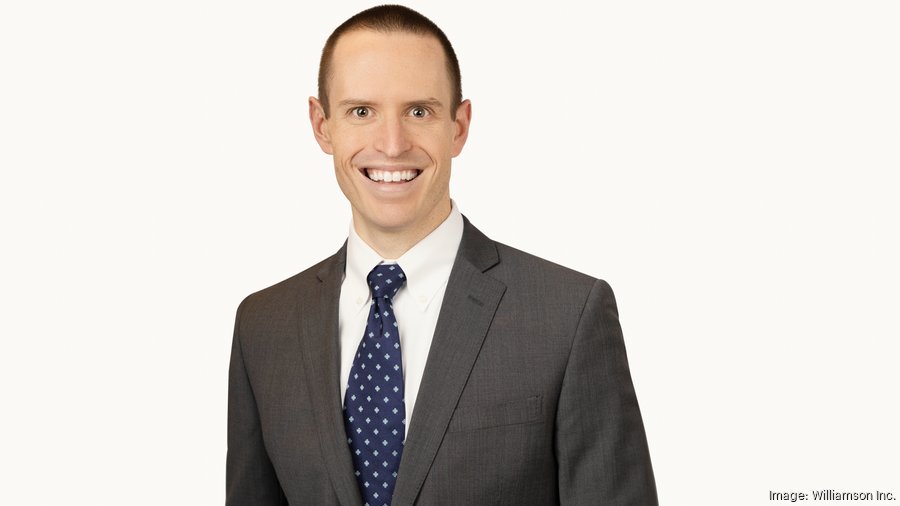Listen to this article 2 min
Nathan Zipper has run a half-marathon in every state. Since late last year, he has been running business recruiting and retention efforts for Williamson Inc., the county’s combined chamber of commerce and economic development arm.
Williamson Inc. started 2023 with a bang, announcing a regional office for In-N-Out Burger 10 days into the new year. The county, which long has been the region’s suburban headquarters hub, ended 2023 with more jobs announcements than any of the other 94 counties in the state.
The atmosphere has grown more contentious this year. Williamson Inc. clashed with several county commissioners who questioned the need to continue the longstanding $400,000 annual contract with the organization. In June, a Franklin-based conservative activist launched a boycott against Brentwood-based Tractor Supply Co., mainly over its support of the LGBT community. The protest was successful, as Tractor Supply eliminated all DEI roles and goals, as well as its carbon-emissions targets.
Zipper, 39 and Williamson Inc.’s chief economic development officer, spoke with the Business Journal about how companies are changing their site-search habits, and the different ways he is prospecting for recruits.
This interview has been edited for clarity and length.
How are you pitching Williamson County, and how is that different than pre-Covid?
Post-Covid, companies are pretty clear on where they want to be. In-n-Out was pretty laser-focused on Franklin from the get-go. That’s a bit different from the past, where it would be, “Hey, we’re thinking about these four states.” It used to be the case that most of our projects came through the state or the Nashville Area Chamber of Commerce. They’re critical partners, but … now you have companies coming straight to us: “We know we want to be in Franklin or Brentwood.”
That changes the conversation. You aren’t pitching, “Here’s why Williamson County makes sense.” Now it’s: “That is fabulous — here’s how we can serve you really well. Tell us about workforce, tell us where you are with real estate and let us get to work for you.”
How does that change your own outreach or recruiting?
I’ve asked site selectors, of all the projects in the world, how many does the site selection community get to engage in? I’ve had a really great one tell me a few times, his number is 25%. That leaves 75% of projects out there that site selectors won’t work. At a lot of companies, executives are making these decisions.
Where we do really well is an executive who has past experience here, and now they’re running a company and making the decision. I’m always trying to find people who have had experience here and now have risen in the ranks … and maybe there’s an opportunity to remind them that we’re a great example of a place to live, work and play. You look at Mitsubishi moving its headquarters here, and that’s a great example of that effect.
We also know we have executives who come here on vacation. Southall [Farm & Inn] — I think there’s a great opportunity there for us, to tell those guests: “Did you know 20% of Tennessee’s management jobs are just over that hill? If you love it here, well, you can do business here, too.” Let’s help them understand this is a wonderful place not just to spend time on vacation, but as a place to do business.
How’s the pipeline look today?
We’re really clear on what we do really well: helping headquarters and back-office tenants land well and get engaged quickly and connect. The new-to-market office projects, the inflow of that is certainly slower. But those that are in the mix, you can tell they’re not just kicking tires; they’re motivated and eager to make decisions.
How do you view your mission, in your current role?
The pillars of our work — business expansion, retention, recruitment, workforce development, entrepreneurship, regional collaboration — those have not changed. We’re really tweaking under those foundational pieces.
We’ve been doubling down on service. My background was in advancement and fundraising for a decade. I always thought about stewardship. What happens after the gift we would get at Vanderbilt or United Way was equally as important as what happened before.
So if we have a company growing here, great. Now the real work begins, to make sure they have what they need to continue to be successful.
Last year, we led the state in announced projects: nine. Seven were expansions. Two were relocations. I like that mix. To me, that says we are ensuring those who are here — who frankly are other people’s prospects — we are ensuring they’re doing really well and expanding here. And we’re also a place for new-to-market companies.
Williamson Inc. received its annual county funding by a wide margin in June, but not without a good bit of friction. What’s your takeaway from that experience?
We can’t tell our story enough. Educating the community, and that includes elected officials, on what we do and how we do it together. We need to continue to draw the circle around elected officials and help them understand, this is work we’re doing, together.
There were some misunderstandings about what the work looks like. So we can’t do enough to tell that story. The relationships we have had with Williamson County government, all the municipalities, has been phenomenal. That’s in large part why we’ve won [deals]: These companies have come and heard and felt, “these folks are working together.”
That episode was another example of a spreading pushback to growth across the region. What do you make of that broader trend?
There’s no question that economic developers, really across the country, are probably thinking hard about how they communicate what they do, and helping those they do it with to understand the approach. I hear that from my counterparts regionally and in other states.






